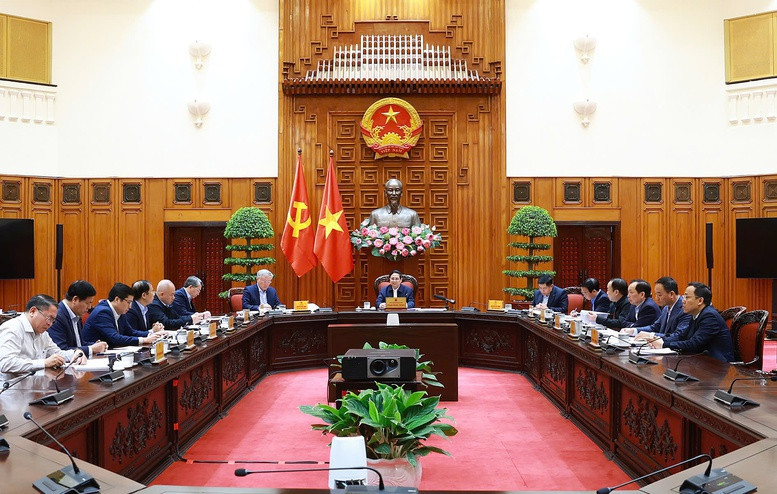
On the morning of March 30, Prime Minister Pham Minh Chinh chaired a meeting of the Steering Committee tasked with reviewing and removing obstacles to stalled and prolonged investment projects across Vietnam.
At the meeting, the Prime Minister emphasized that the top priority is to thoroughly resolve challenges associated with delayed projects to prevent waste of state, public, business, and investor resources. He stressed that doing so would also help ease public frustration and rekindle a sense of responsibility and initiative among officials acting for the common good.
According to the Ministry of Finance, as of March 25, 1,533 projects nationwide have been reported as facing difficulties or delays. These include 338 public investment projects, 1,126 non-budget investment projects, and 69 public-private partnership (PPP) projects. The ministry also received reports from businesses regarding 12 additional troubled projects.
The Ministry of Finance has categorized the issues into 17 main groups, covering areas such as public asset management, capital allocation for public investment, land-use conversion, and decisions to halt, revoke, or terminate projects. Each project has been assigned to the appropriate level of authority - National Assembly, Government, Prime Minister, ministries, or local governments - for resolution.
In early April, relevant agencies are expected to submit a resolution to the Government to address five stalled projects in Ho Chi Minh City. Additionally, the Prime Minister has approved a proposal to allocate supplementary funding for the completion of the Bạch Mai and Việt Đức Hospital branches by 2025.
Decentralization and delegation to resolve challenges decisively
Prime Minister Chinh reiterated the guiding principle that “where problems arise, they must be resolved there,” with each level of authority responsible for resolving its own issues. Unique or complex cases may require special mechanisms.
For land clearance issues, the Prime Minister instructed local authorities, especially at the grassroots level, to resolve them thoroughly, provide appropriate support - particularly for vulnerable and disadvantaged groups - while strictly handling those who deliberately violate or resist enforcement.
Regarding zoning and planning issues, localities are tasked with reviewing sectoral plans to ensure consistency with broader development plans as a basis for project implementation.
For projects and land areas under inspection, audit, or court rulings, the Prime Minister asked the National Assembly to authorize relevant agencies to apply special mechanisms already approved under Resolutions 170 and 171.
In cases where project violations occurred during implementation and revocation is not feasible, the Prime Minister urged a human-centered, practical solution: allow time for correction while safeguarding state assets and protecting the legitimate interests of citizens and businesses.
He emphasized that individual and collective responsibilities must be clearly defined and enforced throughout the resolution process to prevent repeat offenses and avoid setting problematic precedents.
For projects facing legal gaps or those not covered by existing special mechanisms, the Prime Minister directed ministries to study and propose legal solutions to be submitted to the National Assembly in the upcoming session.
The Vinh